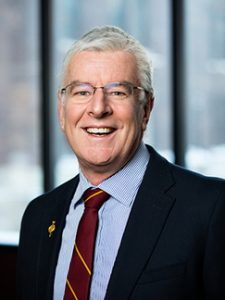
Prostate cancer is the second-most common cancer among all men. Treatment affects both sexual and urinary function, but research on the effects of this medical care have focused mostly on straight men, and very little is known about how treatment affects gay and bisexual men.
To learn more, the School of Public Health has received a $3 million grant from the National Cancer Institute to conduct the first rehabilitation program to help gay and bisexual men overcome these challenges and improve their quality of life.
“There are plenty of studies on how prostate cancer treatment has an impact on heterosexual men and the kind of rehabilitation that improves their quality of life, but there’s good reason why those studies may not apply to gay men,” says principal investigator and Professor Simon Rosser.
Current treatment options for prostate cancer include surgically removing the prostate, radiation, and systemic treatment. These treatments result in cessation of seminal fluid, severe erectile difficulties, and loss of urinary control. Additionally, radiation can cause an irradiated bowel. Rosser, who recently conducted the largest study of gay and bisexual men with prostate cancer, said these effects can be particularly devastating for homosexual men.
Rosser notes there are several factors contributing to the lack of data. Many doctors believed those who had the disease were too old for sex, and therefore, did not need rehabilitation. Additionally, the AIDS epidemic took the lives of many gay men before they reached an age where they would typically be diagnosed with prostate cancer.
This interdisciplinary study will include researchers across the University of Minnesota. Together, the team will design and then test a comprehensive program tailored specifically to the needs of gay and bisexual men and gay sex.
The study will partner with some of the nation’s most prominent prostate cancer clinics serving gay and bisexual men and gay health clinics. Researchers are also working with Malecare, the nation’s largest nonprofit focused on gay and bisexual survivorship from cancer. Malecare will serve as a prime source of candidates for this study.
“We have the world’s largest network of gay and bisexual cancer patients and we have helped numerous research projects accrue high numbers of participants in short amounts of time,” says Darryl Mitteldorf, Malecare founder and executive director.
Rosser emphasized that studying prostate cancer in gay and bisexual men has benefits for more than just that group.
“Ultimately, science is stronger when we conduct studies in multiple populations,” says Rosser. “It helps us to think about problems in new ways, which can lead to new treatments.”
The study is currently gathering participants. Those interested in being part of the study should contact restorestudy@umn.edu.
